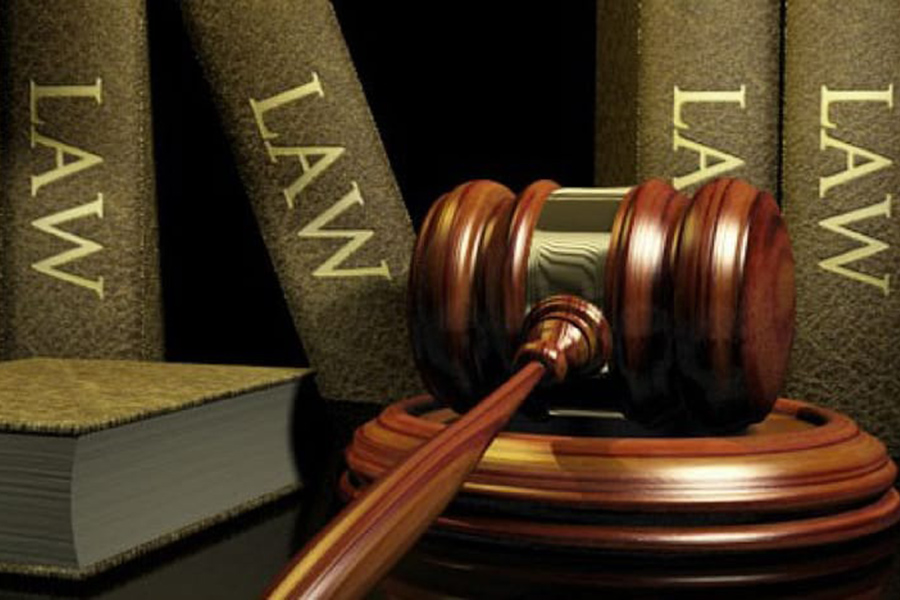Three transgender women filed suit last week in Commonwealth Court, challenging a provision of the state’s name-change law that prevents Pennsylvanians convicted of certain crimes from changing their names.
The petitioners are Philadelphia resident Alonda Talley and Allegheny County residents Chauntey Mo’Nique Porter and Priscylla Renee Von Noaker. They are represented pro bono by the Reed Smith law firm, based in Pittsburgh, and the Transgender Legal Defense and Education Fund, based in New York.
Filed on May 29, their 42-page lawsuit names as respondents the Pennsylvania Department of State and Secretary of State Kathleen Boockvar, who heads the department. The department is responsible for defending the constitutionality of existing state laws.
According to a provision of Pennsylvania’s name-change law, residents convicted of serious felonies such as aggravated assault or rape cannot change their names. The provision was added by the state legislature in 1998 — based on a presumption that persons convicted of serious felonies would change their name for fraudulent purposes.
Pennsylvanians convicted of less serious felonies such as perjury or drug possession are permitted to change their name after a two-year waiting period.
According to the lawsuit, Porter, 39, was convicted of aggravated assault in 2008, and currently works at a holistic wellness clinic. Talley, 32, was convicted of aggravated assault in 2009, and currently volunteers as a receptionist at The Philadelphia AIDS Consortium. Von Noaker, a 68-year-old Native American Two Spirit, served ten years in prison after a rape conviction in 1987.
The women seek a court order declaring unconstitutional the legal provision that prevents them from changing their name.
“Petitioners want to change their names to reflect their female gender, but are barred from doing so simply because they were convicted of felonies years ago,” the lawsuit states. “When engaging in everyday transactions, including attempting to secure employment or medical treatment, they are hampered by the discrimination and confusion that results from being women who present identification that causes them to be incorrectly perceived as male.”
The women also claim to be at risk for violence and harassment because they can’t change their name. “Transgender people who must present mismatched identification are often verbally harassed, physically assaulted, denied service or benefits or asked to leave the premises,” the lawsuit states.
In an affidavit, Talley stated that having her birth name on ID frequently causes difficulties while voting, paying bills over the phone, drinking in restaurants and buying cigarettes at the supermarket.
Porter asserted that she was rendered ineligible to receive gender confirmation surgery after health care providers concluded her legal name indicates she’s not “living as a woman.”
Von Noaker said she recently suffered two heart attacks, yet cannot use her preferred name when going to a hospital for treatment.
The lawsuit stresses the right to personal autonomy. “When people are denied the right to change their names, they are forced to speak and write an undesired name in order to travel, vote, pay taxes, or simply conduct their daily lives. No legitimate government interest can justify this constitutional infringement,” the lawsuit states.
The lawsuit also emphasizes a person’s right to privacy. “When transgender individuals are denied the right to obtain official documentation reflecting the gender-congruent name that they use in everyday life, they must broadcast an undesired name every time their name is required. This inherently requires them to publicize intimate medical information — the fact that they are transgender — against their will every time they seek to engage in everyday transactions such as paying with a debit card, visiting the dentist or applying for a job. This has caused petitioners to experience discrimination, ridicule, and contempt.”
Luke Debevec, an attorney for the women, said he was optimistic of a favorable legal outcome. “Transgender people have a legitimate right to change their name,” Debevec told PGN. “This provision of the law is designed to stop fraud. And transgender people changing their name to match their identity is not fraudulent. It’s neither reasonable nor fair to prevent any opportunity for [the petitioners] to change their name.”
Debevec said authorities still can weed out fraud if the ban is lifted. “The state will still have ample tools to detect and prevent fraud — including the state police database, public notice of the name change and a statement of reasons for changing one’s name,” he said.
Wanda Murren, a Department of State spokesperson, declined to comment for this story. “As policy, we do not comment on active litigation,” Murren wrote in an email.
